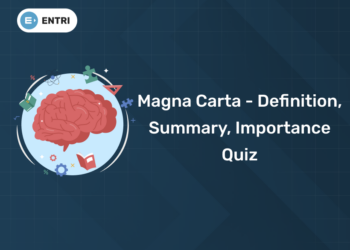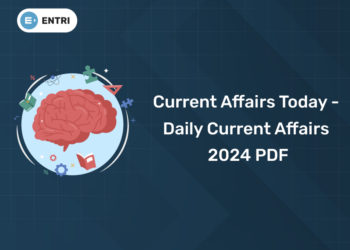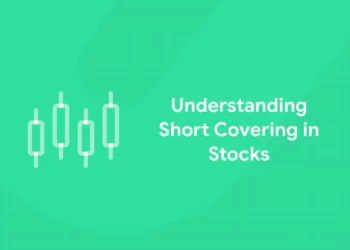Table of Contents
If you are planning to settle your own schedule and selecting the types of development projects you work on, a career as a freelance web developer could make your dream a reality. As an independent professional, you will be more adjustable and have more control over your career. Select whether you want to do front, back, or full-stack web development and the types of projects you want to focus on. Rather than working full-time for one company, you can work directly with different clients and enjoy the benefits of being self-employed.
What is a freelance developer?
A freelance developer works with clients, businesses, or organizations on a contract or project basis to make apps or websites, test them, and put them online.
They are often self-employed and can be affiliated with one or more brands as contractors. Their scope of work consists of client and project management.
Some freelancers might have a set of skills, where as others are highly specialized. A freelancer could make a complete mobile app and give it to the users. Where as some others might be specialized in testing applications.
A freelance web developer builds websites and web applications. There are several kinds of web developers, like frontend and backend developers, full stack developers, and Salesforce developers and many more.
Freelance programmers also work under different terms and conditions. Some work on hourly or daily basis; while others work on a project basis; and others run agencies independently or as a team.
How to become a freelance web developer?
If you want to be a freelance web developer, you have to build your own business. You must pitch your developer services directly to clients or join any freelancer platform, create a profile that promotes your services, and begin submitting proposals to the right jobs.
A freelance web developer has the same specialization and performs the same wok as a developer working for a company. The main difference is that you work for yourself, providing these services to your clients.
Your day as a freelancer is a bit different as when you are not working with your clients or on a project, you have to set aside time to find leads, create proposals, and manage the business side of operations. That consists of everything from invoicing to handling client feedback and edit requests.
1. Define your skills
The best place to start is a skills assessment. Write down a list of all the skills you have at present and the ones you want to learn later on. Explain what you know, what you don’t know, and what you are best at doing. Think about your career goals and what your dream looks like.
Knowing your strengths and weaknesses can help you select works that will enhance your portfolio and reputation. A successful freelance web development career is developed by placing yourself as a skilled professional and backing it up with positive client reviews and work samples. This lets to establish trust with new clients.
You can ask yourself few questions to help assess your skills and decide if freelancing as a web developer is the right career path for you:
- What programming languages do you prefer to work in?
- What aspects of web development do you struggle with the most?
- What type of projects do you have experience working in?
- Could you see yourself in a client-facing role?
- Do you like working individually?
- Would you be comfortable pitching your services to clients?
- Do you want to work in an office?
- Do you mind doing administrative tasks like invoicing?
2. Fill your skills gaps
After assessing your strengths and weaknesses, you may notice gaps where you can enhance to be more profitable to clients. Web development is a skills-based career path, and when you could have a degree in computer science, you don’t necessarily need one if you have the right toolbox of skills and experience under your belt.
You might find an opportunity or tool to assist your freelance web development business during your skills audit and research.
Keeping up with trends like advances in AI for web development could give an opportunity for you to leverage new tools, find areas to specialize in, and be an early adopter. Clients may be interested in integrating AI-powered chatbots into their programs, or you could experiment with AI coding assistants like ChatGPT to help with efficiency.
3. Find helpful tools
Think about the tools you need to use to be successful as a freelancer. If you work directly with your clients rather than on any platform, you can skip paying service fees, but you’ll need to handle many business tasks. You may need to make templates for proposals and invoicing and search for online tools that will make the work easier.
If you work on any platform, you should be able to easily manage business and administrative tasks with automation and integrated tools. You could help streamline productivity with additional project management, organization, and time-tracking tools.
Examples of tools you could incorporate into your freelance business
Project Management
- Trello
- Hive
- ClickUp
- Asana
Time Tracking
- Harvest
- Wrike
- Everhour
- Toggl
MockUps
- Canva
- Notism
- Adobe Portfolio
- Figma
AI
- ChatGPT
- Tabnine
- Midjourney
- GitHub Copilot
- Uizard
The exact tools you need may vary over time and will be based on the customers and projects you take on throughout your career.
4. Create your business plan
Being a freelancer is working in your own business, so you get to select which projects you say yes to and what hours you work. You are self-employed and responsible for everything from finding clients to paying taxes. Creating your business plan is vital to becoming a freelance web developer.
Your business plan assists you sketch out what services you will provide as a developer and how you plan to find your customers. Consider your top skills and the types of projects you want to take on. Many freelancers find success by selecting a niche and working hard to become experts in that space.
5. Build your portfolio
Once you have a solid business plan, it’s time to build your portfolio. This living collection focuses your projects and past work to show customers what you can do. Portfolios are vital for any freelance business, especially web development, and assist prospects know that you can do the work they need. By reviewing past projects, customers can get to know about your work quality and style.
You can develop an entire website dedicated to your work if you’re freelancing off-platform or add your best work to your portfolio. Think of the portfolio as your store where people can browse and select options. This means showcasing a diverse selection of work to attract more customers.
These web samples need not be from actual paying clients. If you’re just a beginner as a web developer, you can create mock samples for your dream. Clients want to see what you can do, so having work samples is more important than having actual clients in the beginning.
Ideas of mock samples to have in your portfolio:
- Landing page
- API-connected website
- Cloned website
- Single page layout
- Website with a perfect score (ex. SEO, performance, accessibility)
Portfolios are highly visional because not all clients know the design language. Someone might not know they need HTML or a particular design, but they can tell you that they want something that works on most computers and phones. Highlight a variety of work so clients can tell you what they want.
6. Conduct market research
Go deep into the web development and design world to see what’s trending and learn about any industry fluctuations. You can soon get information on salaries, hourly rates, and in-demand skills.
Try searching job boards to see what people needs. Joining groups on LinkedIn and Facebook can assist you understand what’s in demand to people. Online communities can also be good resources for input and problem-solving.
Network with other developers for advice and guidance. Many experienced professionals are willing to give tips on how they got started and their starting rates. Collect more information as you can on potential customers and competition.
Power up your career with Entri Elevate – Full Stack Development Course!
7. Apply to jobs
After you know much more about the market and what you want to work on, it’s time to begin applying for jobs. The initial milestone is getting your first few clients. If you don’t have a lot of experience in web development, you may need to start with less rates and take on smaller projects to build your portfolio and reputation.
You can use plenty of job boards to find your first project. Don’t forget to let your personal network know you’re looking for customers because connections, friends, teachers, and classmates may know someone who needs help. People with whom you have an existing relationship may be more willing to take a chance on your work or make personal recommendations that can go a long way.
8. Create your marketing strategy
Once you are ready to start accepting clients, you need to figure out how you to market yourself. As a freelancer, you are a small business owner, so marketing your services and other admin tasks are important fasts of the job.
Many freelancers develop a website for their web development services and drive traffic to it. If you have a marketing budget, you could run pay-per-click (PPC) or social media ads. Marketing can also be organic (unpaid) by being active on social media like LinkedIn and developing search-engine-optimized (SEO) content on your website. You can brainstorm ideas and create a strategy as you write your marketing plan.
Many developers transforms to a freelance developer because of the flexibility and freedom they can have as independent professionals. As a freelancer, you have complete control over your work and can make a schedule that fits your lifestyle as long as you meet your customer’s demands and expectations.
Get help in finding the best university that suit you! Register today!
Below given are some of the main benefits of being a freelance web developer that you might enjoy most:
1. Diverse clients
You have the opportunity to work with a diverse range of customers while working as an independent professional. Instead of just one customer, you have clients who may be very different from one another. You have access to a wide range of clients and can build relationships with people all over the world.
If you want to make a creative art portfolio site this week but concentrate on community sites the next, you have that freedom and generally the availability of clients. You get to switch up what you do and have more variability in your workweek.
2. Numerous opportunities
Almost every business needs a website, which drives demand for web developers. The rise in e-commerce and online services develops ongoing demand. According to the U.S. Bureau of Labor Statistics, the expected growth rate in web development and digital design is 23%, which is much more than the average (around 7.7%). As freelancing becomes more recognized, more companies than ever before are turning to independent professionals to fill their team’s skills gaps.
3. Control over projects
The best thing about being your own boss is that you can opt the projects you bid on and say yes to. You get to do exactly what you want. If you want a type of development, you can concentrate on that and work on becoming an expert. While you may need to accept jobs sometimes to pay the bills, as you grow your reputation and the demand for your services rises, you can start saying yes or no.
4. Work from wherever
Your computer and a strong internet connection are just the things you need to work as a web developer. This gives you the flexibility to work from almost anywhere you want, whether that’s from home or a local coffee shop, or even a vacation spot.
5. Set your own time period
All of us have time we prefer to work. Some people feel more productive first thing in the morning, while others prefer working more at late hours. As a freelance web developer, you can basically create a time that works for your lifestyle—though you’ll likely need to meet clients during set times during a project for meetings. Night owls and early birds can change hours to meet their needs as long as you make time for meetings and client calls.
6. Grow your career on your own terms
If you want to learn something new, then take an online course and then look for small projects in that area. Get immediate experience as a freelancer that may take longer if you were an in-house developer. You can also specialize in industries or client types to develop your niche. Enlarging your reputation as an expert in a specialty can assist increase the demand for your services so you can increases your rates. People tend to be quicker and better at the work they enjoy doing, which is an added incentive.
Characteristics of a good freelance web developer
Successful freelance web developers know the importance of accomplishing their technical expertise with relevant soft skills. Customers want web developers who make the overall work simple and relaxed.
Even if you’re very much talented at the technical work you do, having valuable skills like communication and reliability are important for positive feedback, referrals, and repeat clients.
These are some of the non-technical skills and characteristics of a good freelance web developer that customers look for:
Communication
Customers look for freelancers with good communication skills, which assist establish trust and avoid any mix-ups due to misunderstandings. As a freelancer, before beginning a project, you should meet with the customer so you know exactly what they need and their deadlines. Practice active listening to understand expectations and confirm agreements. Another feature of good communication is giving updates along the way and asking questions as they arise.
Reliability
Freelancers must be reliable giving the correct and complete work, at the promised quality, and at the agreed time. A customer’s worst fear is that getting incorrect work done or doesn’t meet their quality standards after paying for a project. Having a reputation for reliability through client feedback and referrals assists you to establish trust quickly and ease that concern.
The main way to be reliable is to do what you say properly.
Always give customers your best work and make sure you’re on the same page when it comes to deliverables, updates, and deadlines. Every client should get same level of attention, care, and quality, whether it’s a small project or a repeat client you’ve established a relationship with.
Accountability
Another feature of trust is accountability. Clients want to know whether you are self-motivated and accountable, staying on top of your tasks, managing the project, and sticking to deadlines. Most customers don’t want to have to handle their freelance web developers. They want to feel confident that once they tell you what they want, you will make it happen on time.
When you are accountable, it means you take responsibility. You are your own project manager–making sure you have what you need. If something comes up or goes wrong, you’ll let the customer know as soon as possible and apply good problem-solving to get the project back on track.
Always willing to help or start new projects
Being eager and helpful can help turn one-off clients into repeat ones. They want to feel like you are interested and want to take on more works. Customers love to work with talented freelancers they trust and already know. Going out of your way to help a customer can help develop a meaningful relationship.
If you enjoy working with a client and want to work more with them, at the end of a job ask them if they have any other works that fit your skill set, reminding them of all your skills, along with the ones that may not have been used in this project. This allows them know you are ready for next work. The answer will not always be yes, but that’s to be anticipated. Based on the client, web development may be a one-off project, but if you’re helpful and great to work with, they may refer you to someone else.
Education and skills needed to become a freelance web developer
Web development is a career that is heavily based on skills. You can opt to have a formal education or work on learning to code and program independently through online classes. As a freelance web developer, you’ll need to know specific programs, coding languages, and tools, based on the type of web development services you want to provide your customers.
Education
Even though you don’t need a formal degree to become a freelance web developer, a background in computer science can be helpful. Associate’s degree programs are just two years long, focusing on web development or design. You can also learn the broader field of computer science and get a bachelor’s or even a master’s degree. If you don’t want to go to a university, online e-learning platforms provides great options. You can take courses online and earn certificates in specific languages.
Skills
An important part of web development is knowing how to code and program. The languages you learn is based on the type of web development you want to concentrate on: front-end, back-end, or both (full-stack). If you don’t have a formal degree, earning certificates in these skills can aid exhibit your talents and strengths to potential clients.
Popular front-end development languages include:
- HTML
- CSS
- JavaScript
- React
- Swift
Popular back-end development languages include:
- PHP
- SQL
- Python
- Java
- Ruby
- C#
Beyond knowing those languages, these are other skills that successful web developers learn and keep updated:
- Search engine optimization (SEO)
- Testing and debugging
- Responsive web design–making websites work across devices
- UX and UI–creating a user-friendly experience and interface
- Web hosting
- Cybersecurity
- API–being able to integrate client software and programs
- Database management
- Content management systems (CMS)
| Related Links | |









